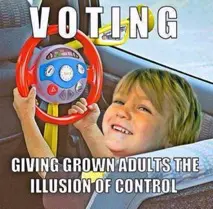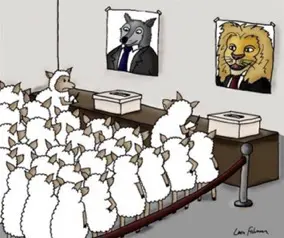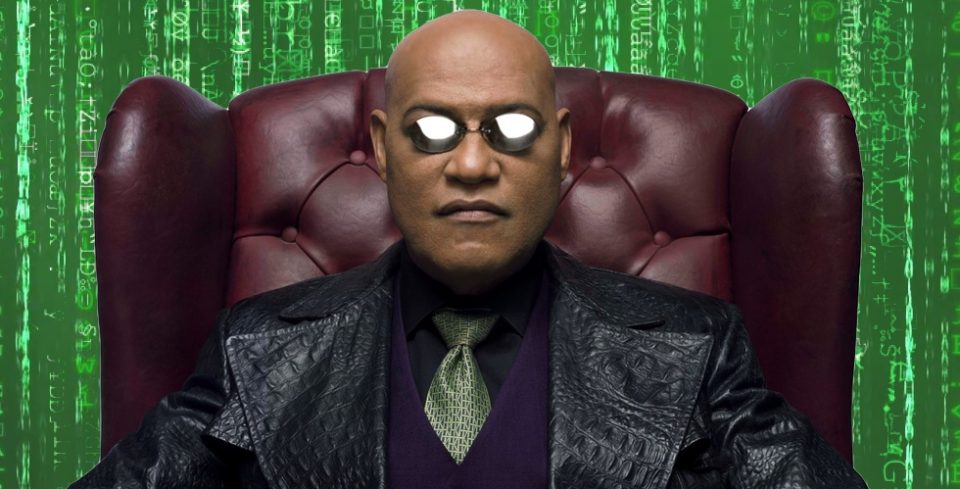
“Have you voted today?”
I remember uttering these words when calling up random, local people on the phone hours before the end of the 2000 U.S. Presidential election. Somehow I got roped into all the political activism. The world was, after all, either going to end or be rescued from the end—and I had a big role to play. “People died for your right to partake in elections.” “It’s the duty of a good citizen.” “You have power through your vote: use it!” And, of course, “not voting is the worst thing you can do; it’s a waste and a disgrace.”
I don’t believe any of this anymore, and it seems most other God-forsaken Millennials don’t either. How wonderful! People are starting to wake up to the reality of the small box we live in, including that elections are just a popular distraction that have nothing to do with real problems. Furthermore, voting disempowers the citizenry in so many ways:
- It assumes the legitimacy of the state. Since all nation-states are merely groups of people with a territorial monopoly on violence, partaking in elections is the same as co-deciding who should be in charge of a large-scale gang. Participating in the process assumes that the process is neutral at best, or legitimate at worst. But it is neither neutral or legitimate. The longer the state’s existence goes unquestioned, the longer freedom will be stifled and systematic violence will continue to be legitimized.
- It assumes the legitimacy of the political apparatus. The political process has been used to legitimize almost every violent act imaginable—from (thoroughly) unjust wars, to in-border Japanese concentration camps, to torture, to large-scale invasions, personal theft, land theft, slavery, and more. This distracts us from effective, private means of changing the world, and it empowers the most incompetent human entity ever devised: the government.
- It gives power to those who least deserve it. Most of the people who get elected are among the most unethical and manipulative people in the world, hence all the notorious jokes about politicians. When bribery and lying are fair game, regular practice, and highly rewarded, virtue becomes irrelevant. But why should such morally-unqualified people be given the right to determine how force should be used against millions of others?
- It gives power to those who least deserve it. Most politicians are owned by crony capitalists and central banksters; they simply do not have “the people’s best interest” in mind. Even if they did, they can’t fulfill everyone’s interests, anyway, since individual interests inevitably vary. Politicians go where the money goes—and there’s nothing sweeter than that unearned “gubberment money” and back-door cash from corporations. Voting for politicians gives power to the groups who own those politicians.
- It gives power to those who least deserve it. Voting gives power to the government, and governments—and their employees—don’t provide a service that people voluntarily want; all exchange with governments is involuntary, not voluntary. Whether a good job is done in combating crime or saving mother earth, the citizenry doesn’t have the power to withhold their money from the state to make things better (like they can with any other group). No matter how dysfunctional, how violent and unethical, or how inefficient the goods and services offered by the government are, people must pay for them or else be punished.

There are other problems with voting besides those that disempower the citizenry, such as those outlined by Rose Wilder in The Discovery of Freedom:
- “no one can possibly vote intelligently unless they give their whole time to politics and knows, personally, each of the candidates of both parties.”
- “the vote does not control people in office.”
- “the very idea of a majority is a delusion…the actual result is that the decision is made by a few.”
And then there are even more problems to consider:
1. The options are usually evil. Isn’t it embarrassing that the discussion of ‘the lesser of two evils’ even comes up? It should be, because if evil is the only option, why expect any positive results at all? The logic behind arguing in this way is also problematic. As it’s been said, “The problem with voting for the lesser of two evils is how do you know you’re not voting for the better of two liars?” Secondly, since people can choose to not vote, wouldn’t conscience demand that non-evil people not vote for evil?
2. America’s Founders would be shocked by the voters’ dogma. When there is no true “representation” (Patrick Henry), it is irrelevant whether people partake in the political process. Voting or not voting, democracy or no democracy. If people’s decisions aren’t actually reflected in the decisions of politicians, it’s time for peaceful secession and withdrawal, not hopeless attempts at ‘reforming from the inside.’


), //libertarianchristians.com/wp-content/plugins/smartquizbuilder/includes/images/template6-latest.jpeg))

), https://libertarianchristians.com/wp-content/plugins/smartquizbuilder/includes/images/template6-latest.jpeg))


;?>/smartquizbuilder/includes/images/sqb-registration-img.jpg)

